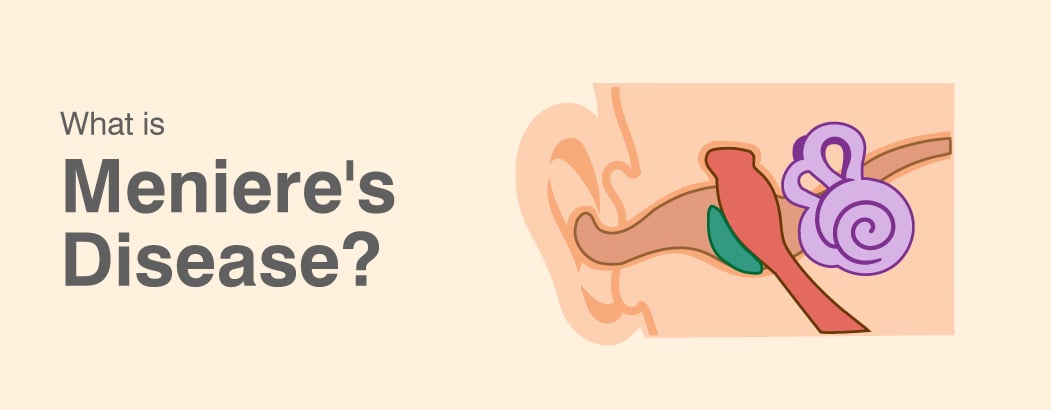What is Meniere’s Disease?
November 13, 2023

Meniere’s disease
Vertigo, hearing loss, and ringing in the ears are symptomatic of meniere’s disease which is an inner ear condition. Think of an individual who walks on eggshells and experiences a constantly changing tune during the process of listening. Meniere’s destabilizes balance and equilibrium making it hard for persons with the disorder to seek stable ground among waves of symptoms. However, treatment is aimed at alleviating the discomfort while striving for a better quality of life. Ongoing investigation should reveal the secrets of Meniere’s and allow for less turbulent sailing on the ocean of this disease.
Table of Contents
- Meniere’s disease
- Symptoms of Meniere’s disease
- Causes of Meniere’s disease
- Diagnosis of Meniere’s disease
- Treatment for Meniere’s disease
- Conclusion
- frequently asked questions
Symptoms of Meniere’s disease
A whirlwind of symptoms emanating from Meniere’s disease disorder of the inner ear can affect physical and mental health. Here’s a brief exploration of the telltale signs:
Vertigo: Meniere’s disease is characterized by its sudden and severe dizziness attacks with accompanying spells in which there is spininess or unsteadiness.
Hearing Loss: Sometimes, a person with Meniere’s disease experiences irregular deafness that is usually only one-sided. It may feel like fullness or pressure in the afflicted ear.
Tinnitus: Such persistent auditory symptoms as persistent ringing, buzzing, or roaring sounds in the ear commonly occur in Meniere’s disease. Such sounds can be either transient or continuous.
Aural Fullness: Some patients with menieres describe “fullness” or “pressure” in the affected ear, as someone feels at a time during a flight or high mountains.
Nausea and Vomiting: Nystagmus may cause nausea or even lead to vomiting on top of everything a patient is going through in Meniere’s.
The signs of Meniere’s disease should be recognized to ensure early treatment and administration. Therefore, if one has these symptoms, he or she should consult a medical doctor to find an approach that will enable them to lead a balanced and controllable life. The first step in overcoming meniere’s is becoming a part of it by learning to embrace the rough waters that come with life.
Causes of Meniere’s disease
Although nothing is known about its specific origin, various things have been suggested as contributing causes of Meniere’s disease.
Inner Ear Fluid Imbalance:
There is frequently an abnormality relating to the fluid homeostasis in the internal ear linked to the condition. Such an imbalances lead to rise in pressure which in turn affects the sensitive organs used to hear and maintain body equilibrium.
Genetic Predisposition:
Research indicates that Meniere’s disease has a hereditary aspect. Persons who had this disease in their families may have a higher predisposition towards the condition.
Vascular Issues:
Other researchers suggest that there may be an issue on how blood flows to inner ear and associate it with Meniere’s disease. The inner ear tissues could experience poor health with a reduced amount of blood being channeled to those areas.
Autoimmune Factors:
Meniere’s may result from an excessive immune reaction. For example, autoimmune disorders, which are caused by the body attacking its own tissues, may also include targeting of the inner ear.
Allergies and Infections:
Therefore, some allergies and infections particularly of the ear can provoke or aggravate Meniere’s signs. These conditions may affect the functioning of the inner ear depending on how the body responds to them.
Diagnosis of Meniere’s disease
The classic presentation of Meniere’s disease is episodes of vertigo that recur, the loss of hearing on one or both sides in one or more spells, tinnitus, and aural fullness and discomfort. Initial steps include a thorough medical history and a comprehensive physical examination.
Hearing levels are determined using Audiometric tests like pure-tone audiometry that show alterations associated with Meniere’s. There are special vestibular function tests such as electronystagmography or videonystagmography which analyze eye movements to identify imbalances in the balance system. The radiology tests will rule out MRI for imaging studies in some cases.
It is a challenge because Meniere’s symptoms are similar to other conditions; hence, it is important to have the correct diagnosis for effective treatment. In most cases, multidisciplinary assessment that involves otolaryngologist, audiologist, and neurosurgeon is carried out. Early identification and treatment of the symptoms improve the general health status of the persons and reduce interference with their normal routines.
Treatment for Meniere’s disease
Medication:
For instance, doctors can give drugs that flush out excess fluids, reducing pressure on the inner ear. Other drugs that may help relieve the effects such as vertigo and nausea are anti-vertigo and anti-nausea drugs respectively.
Lifestyle Changes:
Making the right lifestyle choices could be the lifesaver for Meniere’s. A low-salt diet should also be encouraged since too much salt may result in fluid loss. Additional suggestions could include caffeine and alcohol reduction that tend to worsen some symptoms of schizophrenia.
Physical Therapy:
One such type of physical therapy is vestibular rehabilitation, which can help improve balance and minimise dizziness attacks. The brain is trained to work with these changed signals in the inner ear through such exercises.
Invasive Procedures:
When it becomes unbearable, surgical options like endolymphatic sac decompression and vestibular nerve section, respectively, are taken into account, in severe cases. The procedures focus on relieving symptoms but target the problems at the level of the inner ear.
Hearing Aids and Cochlear Implants:
Hearing loss may require hearing aid or CI to restore auditory function which affects quality of life and communication in general.
However, a combination of these personalized treatments tailored according to specific cases can only relieve but not cure the disease. One is always advised to seek medical advice and prescribed medication to formulate an appropriate line of treatment taking into consideration a person’s peculiarities.
Prevention Of Meniere’s disease
While it is challenging to control meniere’s disease, some activities can aid in the management of this condition and prevention or alleviation of its symptoms. It is important always to have a balanced life-style for one to observe proper nutrients low salt diet, also controlling stress dramatically helps. In addition, regular physical activity involving exercises for improving blood flow and stability may be quite important.
Drinking lots of water in the daily plan may be vital because it helps with the water balance inside the inner ear that leads to Meniere’s disease.QityEngine: It is also important to monitor and control any health problems like hypertension or diabetes that may worsen the situation.
If it has to be effective, the control must also consider mindful management of environmental factors. Protect your ears by not exposing them to noise and wearing earplugs. It is important to undergo periodic visits with a physician specializing in ear, nose, and throat disease for early detection of the sickness, which will require urgent treatment.
Finally, a total approach to healthy lifestyle concerning proper diets, stress control, physical exercises, and protection from environment factors is a strong protection against Meniere’s disease. Adopting these preventative measures in empowering can lead to a healthier life balance.
Conclusion:
Hence, the course of Meniere’s disease is fraught with difficulties, including dizziness, deafness, and constant noise inside one’s ear. Going through various mood swings is like tiptoeing over uncharted territory. The specific aetiology is not clear, but a new study is coming out that will explore the mysteries behind this inner ear disease. The pain is lessened through medicines, lifestyle changes and, if necessary, surgery. Early diagnoses and a multi-discipline approach improve quality of life of people who are infected. We must adopt a balanced lifestyle, including proactive prevention, in our fight against Meniere’s to sail calmly in the waves of life.
Frequently Asked Questions
1. What is the best treatment for Meniere’s disease?
A common approach to treating Menier’s disease typically incorporates dietary changes, diuretic drugs, and surgeries aimed at eliminating discomfort associated with vertigo as well as deafness and noise inside the ear.
2. What is the main cause of Meniere’s disease?
Nevertheless, the exact cause for Meniere’s disease remains unknown; although it is believed that some factors such as overaccumulation in the internal ears might be involved and could be associated with the blood flow problems or regulation.
3. Should I see an ENT or neurologist for Meniere’s?
For Meniere’s disease, it is advised first to visit an ENT specialist because these specialists handle conditions that concern the earing and conduct various examinations to manage the mening disease.








